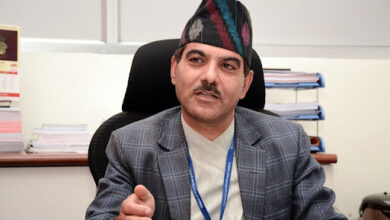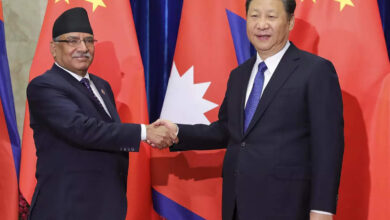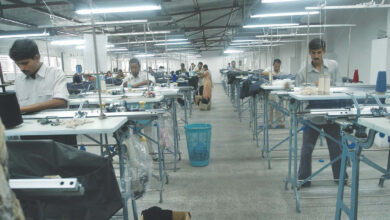European Commission extends its decade-long ban on Nepali airlines
Experts say Prime Minister Dahal should be held responsible this time as he has prevented two crucial civil aviation bills from becoming law.

By Sangam Prasain
Kathmandu: In July, two months before the European Union Aviation Safety Agency planned a safety audit of Nepal’s aviation system, the Tourism Ministry sent the draft civil aviation bills to the cabinet, seeking its ‘approval in principle’ to table it in Parliament.
The message was clear. Passing the civil aviation bills would ensure an independent regulator and put Nepal out of the air safety list, which has caused immense damage to Nepal’s tourism industry and earned it the reputation of being a country with a terrible aviation safety record.
The draft bills, already passed by the upper house and dropped by the lower house following a change in government, were abruptly halted by the Pushpa Kamal Dahal administration.
These two long-pending aviation bills—the Civil Aviation Authority of Nepal Bill and the Air Service Authority of Nepal Bill—envisage splitting Nepal’s aviation body into two entities—service provider and regulator, a condition for Nepal to be struck off the air safety list.
Multiple sources whom the Post talked to say that the bill’s passage was stopped by Pradip Adhikari, director general of the Civil Aviation Authority of Nepal, after he assured the prime minister and other political leaders that the European Commission (EC), part of the European Union executive, would lift the ban this time.
Adhikari’s assurance has come to naught.
On Thursday, the EC decided to continue its ban on Nepali airlines through an updated the “EU Air Safety List,” the list of non-European airlines that do not meet international safety standards and are therefore subject to an operating ban or operational restrictions within the European Union.
The EU Air Safety List is based on the unanimous opinion of member states’ aviation safety experts, who met in Brussels on November 14-16 under the auspices of the EU Air Safety Committee.
The decision keeps Nepal in the EC’s bad books, now for 11 years in a row.
This speaks volumes about the negligence that has resulted from the corrupt system, insiders say. “This will eventually destroy the tourism industry,” a private airline official said.
In its update, the EC said it decided to maintain the ban on air carriers certified in Nepal because of continued safety concerns identified during an assessment visit to Nepal on September 11-15.
It, however, said that the Nepal Civil Aviation Authority’s proactive engagement and ongoing efforts to enhance its safety oversight capacity were duly acknowledged during the EU Air Safety Committee meeting.
In a separate note issued to the civil aviation body, which the Post has obtained, the EC said, “In view of the safety deficiencies identified during the visit, concerns remain about the current capacity of CAAN to properly discharge the responsibility required by relevant international safety standards.”
The note added, “It is essential that CAAN, Shree Airlines and Nepal Airlines develop and implement comprehensive corrective action plans. These plans should prioritise two key objectives—firstly, consistent application of root cause analysis principles to address the observations identified during the on-site assessment visit and, secondly, establishing specific action for each of the identified root causes.”
Experts say that the message is clear. The EC is concerned with the current capacity of CAAN as well as its responsibility. “We cannot blame airlines when the role of the regulator itself has come under question,” an aviation expert said.
For a long time—over 15 years—global aviation watchdogs have questioned the civil aviation body’s dual role and urged Nepal to split the organisation into two entities—service provider and regulator—to enhance the safety of flyers.
However, the government has shown no interest in doing so, and Nepal’s aviation industry is suffering as a result.
“In the second innings [of the bills] too, we made a lot of effort to table the bills in the Cabinet. The Finance Ministry sat on them for three months when they were sent for comments. Then, it was with the law ministry for another three months,” two sources familiar with the matter at the Tourism Ministry told the Post.
“After receiving nods from the Law and Finance ministries, the draft bills landed at the prime minister’s office. And they are still there.”
“The prime minister has not asked the chief secretary to table the bills [in the Cabinet].”
Sanjiv Gautam, former director general of the Civil Aviation Authority of Nepal, said: “It’s the prime minister who should be held accountable this time as it was him who blocked the passage of the bills.”
“Everyone should know why the bills are being held back. What’s the reason and motive behind it?” questioned Gautam.
In December 2013, the European Commission imposed a blanket ban on all Nepali airlines from flying into the 28-nation bloc.
“Why would the EC lift the ban? There have been no substantial improvements in Nepal’s aviation sector,” said an aviation expert, who wished not to be named. “People are dying in the world’s safest mode of transport. Crashes in Nepal keep happening and there are no concrete efforts to prevent them.”
In June, the tourism ministry demanded clarification from the civil aviation body chief Adhikari on nine different issues. He was charged with misusing his position and failing in his duty.
The ministry has accused the director general of consistently failing to ensure aviation safety, with five aircraft incidents and accidents on his watch, including three disasters.
There were two more major accidents after the clarification was sought.
“Since serious incidents and accidents continue to happen, the country is suffering losses, and serious questions are being raised about Nepal’s aviation safety. As an executive responsible for the implementation of the state safety programme, why should you not be charged with failing to fulfil your responsibility to ensure the effectiveness of aviation safety?” the note stated.
The reply from Adhikari was, however, kept a secret.
Adhikari admits that there are problems and they will be resolved.
“There are problems in our system. The EC has asked us to make a corrective action plan,” Adhikari told the Post. “We will act accordingly.”
The EC has raised questions about Nepal Airlines, the civil aviation body and Shree Airlines, saying they all need a “substantial overhauling”.
Questions about Nepal Airlines data management and training manual among others were raised over the years, resulting in many countries like China, South Korea and Australia thinking many times about letting the carrier operate in their region, according to sources privy to the matter.
Nepal has been consistently failing to abide by the reforms recommended by global aviation watchdogs.
In August last year, the United Nations aviation watchdog, the International Civil Aviation Organisation, formally asked Nepal to split the civil aviation body into two entities. The separation is a crucial organisational reform agenda which has been a work in progress for the past decade and a half.
ICAO said in its Nepal audit report, a copy of which the Post has obtained, that the move was needed to “ensure a clear separation of authority between service providers, operators and the regulatory authority”.
This was the first time that ICAO, which creates regulations for aviation safety, security and efficiency globally, wrote to Nepal to get it to undertake the functional separation. ICAO has made this issue a high priority.
“Why is everyone saying that the EC and ICAO have been pressing Nepal to split the Civil Aviation Authority of Nepal? That’s a false statement. This is Nepal’s agenda, not the European Commission’s,” said Gautam, former chief of CAAN.
The government first announced the proposal to split CAAN in its Three Year Interim Plan (2007-08 to 2009-10).
Since then, every periodic plan and policy, including the annual budget, has given priority to separating the civil aviation body. But there has been no progress on the implementation front.
Insiders say there is larger politics to prevent the bills from becoming law. They say that once the civil aviation body is separated, some top position holders will lose the dual benefits they have been enjoying.
The existing system allows CAAN’s director general to issue tenders for multi-billion-dollar projects.
The same person also has the plum job of overseeing compliance with projects and aviation regulations governing the issuance of licences to airlines and crews.
Sangam Prasain is Business Editor at The Kathmandu Post, covering tourism, agriculture, mountaineering, aviation, infrastructure and other economic affairs. He joined The Kathmandu Post in October 2009.




